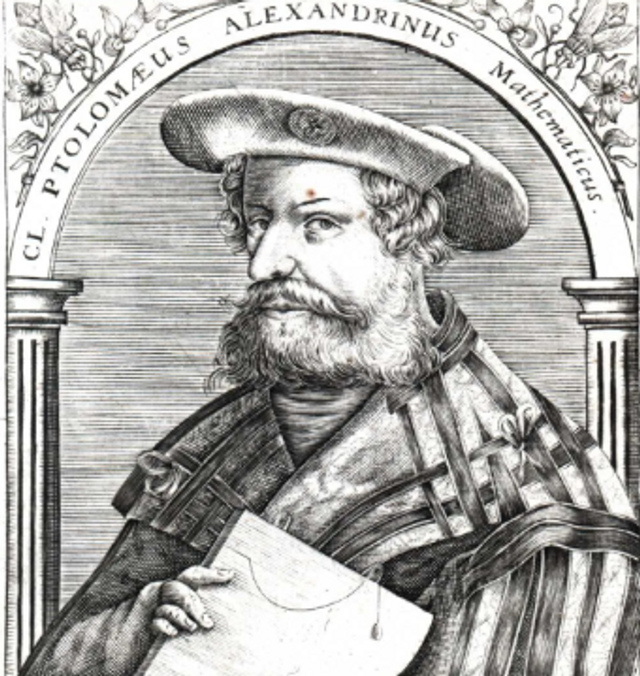
Claudius Ptolemy
Claudius Ptolemy, commonly referred to as Ptolemy, was a Greek mathematician, astronomer, and geographer who lived in Alexandria, Egypt during the second century AD. His work had a profound impact on the fields of astronomy, mathematics, and geography, and his ideas continued to be influential for many centuries after his death. In this blog post, we will explore Ptolemy's life, his major contributions to various fields, and his legacy that has endured for over two millennia.
Early Life and Education Ptolemy was born in the city of Ptolemais Hermiou in Upper Egypt, although little is known about his early life. He likely received his education in Alexandria, which was at the time a hub of intellectual and cultural activity. It was here that Ptolemy became interested in mathematics, astronomy, and geography, and began his lifelong pursuit of understanding the world around him.
Astronomy Ptolemy is perhaps best known for his work in astronomy, particularly his development of the geocentric model of the universe. This model placed the Earth at the center of the universe, with the sun, moon, and planets orbiting around it. This view was widely accepted for over a thousand years, until it was eventually replaced by the heliocentric model proposed by Copernicus in the 16th century.
Ptolemy's most famous work on astronomy is the Almagest, a 13-volume treatise on the motions of the stars and planets. The Almagest was the most comprehensive work on astronomy in the ancient world, and was used as a reference by astronomers for centuries after its publication. Ptolemy's detailed observations and calculations of the movements of the celestial bodies were groundbreaking and laid the foundation for much of modern astronomy.
Mathematics In addition to his work in astronomy, Ptolemy also made significant contributions to the field of mathematics. He is credited with developing trigonometry as a separate branch of mathematics, and his trigonometric tables were used for centuries to calculate astronomical positions. Ptolemy also wrote a treatise on optics, in which he explained the behavior of light and its properties.
Geography Ptolemy's work in geography was also groundbreaking, and his Geographia was the most comprehensive atlas of the ancient world. The Geographia contained detailed maps of the world known to the ancient Greeks and Romans, and provided information on the locations of cities, rivers, and mountains. Ptolemy's work in geography laid the foundation for the development of cartography and the study of geography in the Western world.
Legacy Ptolemy's work had a profound impact on a wide range of fields, including astronomy, mathematics, and geography. His contributions to the development of the geocentric model of the universe and the Almagest were particularly influential, and his ideas continued to be influential for centuries after his death. Ptolemy's work also had a lasting impact on the Islamic world, where his ideas were studied and expanded upon by scholars such as Al-Khwarizmi and Al-Biruni.
In conclusion, Claudius Ptolemy was a pioneering figure in the fields of astronomy, mathematics, and geography. His work laid the foundation for much of our understanding of the cosmos today, and his ideas and methods continue to be studied and expanded upon by scholars around the world. Despite the passage of over two millennia since his time, Ptolemy's legacy endures as a testament to the power of human curiosity and the pursuit of knowledge.
- Astronomy